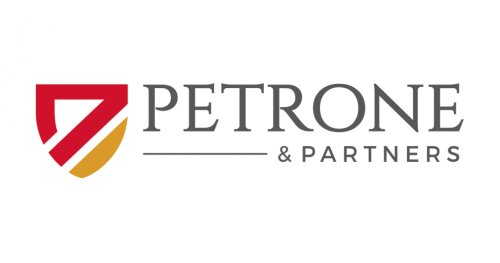Best Whistleblower & Qui Tam Lawyers in Thunder Bay
Share your needs with us, get contacted by law firms.
Free. Takes 2 min.
List of the best lawyers in Thunder Bay, Canada
About Whistleblower & Qui Tam Law in Thunder Bay, Canada
Whistleblower and Qui Tam laws are designed to encourage individuals to report illegal or unethical activities within organizations, particularly where public funds or interests are at stake. In Thunder Bay, Ontario, as in the rest of Canada, these legal frameworks exist to protect those who expose wrongdoing and, in certain circumstances, enable them to take legal action on behalf of the government. While the concept of "Qui Tam" - a person suing on behalf of the government for fraud - is more established in the United States, Canada has mechanisms within its broader whistleblower protections that allow individuals to report misconduct, especially related to public funds, corruption, or employer retaliation.
Why You May Need a Lawyer
Navigating Whistleblower and Qui Tam matters can be complex and intimidating. You may need a lawyer in situations including:
- You suspect or have evidence of fraud against the government or misuse of public funds by your employer.
- You wish to report illegal activity or breaches of regulations within a public institution, company, or government agency in Thunder Bay.
- You are facing retaliation (disciplinary action, dismissal, demotion, etc.) for having reported wrongdoing or for cooperating in an investigation.
- You need advice on protection of your rights, anonymity, or the legal implications of making a disclosure.
- You are uncertain about the appropriate authority or process for submitting a complaint or claim.
- You wish to file a civil claim related to whistleblowing, such as wrongful dismissal or breach of contract.
Local Laws Overview
Whistleblower protections in Thunder Bay are governed by several provincial and federal statutes:
- Public Sector Disclosure: The Ontario Public Service of Ontario Act and Public Servants Disclosure Protection Act (PSDPA) at the federal level protect public employees who disclose wrongdoing in good faith.
- Workplace Protections: The Ontario Occupational Health and Safety Act and Employment Standards Act contain anti-reprisal provisions protecting employees who speak out about unsafe or unlawful practices.
- Anti-Fraud Laws: Reporting fraud against government institutions may fall under criminal law or ethical codes, depending on the nature of the offense.
- Legal Process: While Canada does not have a US-style civil "Qui Tam" action, there are processes for reporting fraud or corruption that trigger official investigations.
- Anonymity and Retaliation: Laws offer some anonymity safeguards and mechanisms for addressing reprisals, though these are subject to certain legal exceptions.
Frequently Asked Questions
What is a whistleblower?
A whistleblower is someone who exposes information or activity within an organization that is illegal, unethical, or not in the public interest.
Does Canada have Qui Tam laws like the US?
Canada does not have a Qui Tam law exactly as in the US, which allows individuals to sue on behalf of the government and receive a portion of the recovered funds. However, whistleblowers can report wrongdoing and may be protected from retaliation by other laws.
What protections are available for whistleblowers in Thunder Bay?
Whistleblowers may be protected under provincial or federal law, depending on their employer and the nature of the disclosure. These include protection from retaliation and the right to confidentiality in some cases.
Can I be fired for being a whistleblower?
It is illegal for employers to retaliate against employees for making a disclosure in good faith about wrongdoing. This includes termination, demotion, or other adverse actions. Legal remedies are available if retaliation occurs.
What should I do if I witness misconduct or fraud at my workplace?
Document your observations and consult a lawyer or the relevant government agency about the safest and most effective way to make a disclosure.
Who can I report to as a whistleblower in Thunder Bay?
Depending on your situation, you can report to your employer's internal ethics/compliance office, a government oversight body, a relevant regulator, or law enforcement.
Is my identity protected if I come forward?
The law seeks to maintain whistleblower confidentiality but there are exceptions, particularly if disclosure is necessary for investigation or legal proceedings.
What are my rights if my employer retaliates against me?
You may have the right to file a complaint with a labour relations board, human rights tribunal, or the courts. A legal professional can help you understand your options and remedies.
Can I claim a reward for reporting fraud?
Unlike some countries, Canada does not generally provide monetary rewards for whistleblowers. However, reporting may be rewarded by protecting public interests and, in rare cases, financial compensation may be ordered by a court.
Do I need evidence to make a whistleblower claim?
You should have a reasonable belief and supporting facts. The more documentation and evidence you have, the better the chance of a successful outcome and your own protection.
Additional Resources
Several organizations and bodies can assist individuals seeking help with whistleblower issues in Thunder Bay, Ontario:
- Office of the Public Sector Integrity Commissioner of Canada - For federal public sector concerns
- Ontario Ombudsman - For concerns related to provincial public sector mismanagement or wrongdoing
- Ontario Labour Relations Board - For workplace retaliation or reprisal cases
- Law Society of Ontario - To find qualified local lawyers
- Thunder Bay Community Legal Clinic - For initial free legal advice on employment or whistleblower issues
- Canadian Centre for Ethics and Corporate Policy - For general guidance on ethics issues in organizations
Next Steps
If you believe you need legal assistance regarding a Whistleblower or Qui Tam matter in Thunder Bay:
- Collect and securely store any relevant evidence or documentation.
- Avoid discussing your concerns with anyone not bound to confidentiality or lawyer-client privilege.
- Contact a lawyer experienced in employment law or administrative law, or reach out to your local legal clinic for a consultation.
- Consider your options for reporting, including internal channels (within your workplace) and external authorities.
- If you face retaliation, act quickly to seek legal advice, as there may be deadlines for making a complaint or filing a claim.
- Stay informed of your rights and follow professional legal advice throughout the process.
Lawzana helps you find the best lawyers and law firms in Thunder Bay through a curated and pre-screened list of qualified legal professionals. Our platform offers rankings and detailed profiles of attorneys and law firms, allowing you to compare based on practice areas, including Whistleblower & Qui Tam, experience, and client feedback.
Each profile includes a description of the firm's areas of practice, client reviews, team members and partners, year of establishment, spoken languages, office locations, contact information, social media presence, and any published articles or resources. Most firms on our platform speak English and are experienced in both local and international legal matters.
Get a quote from top-rated law firms in Thunder Bay, Canada — quickly, securely, and without unnecessary hassle.
Disclaimer:
The information provided on this page is for general informational purposes only and does not constitute legal advice. While we strive to ensure the accuracy and relevance of the content, legal information may change over time, and interpretations of the law can vary. You should always consult with a qualified legal professional for advice specific to your situation.
We disclaim all liability for actions taken or not taken based on the content of this page. If you believe any information is incorrect or outdated, please contact us, and we will review and update it where appropriate.









